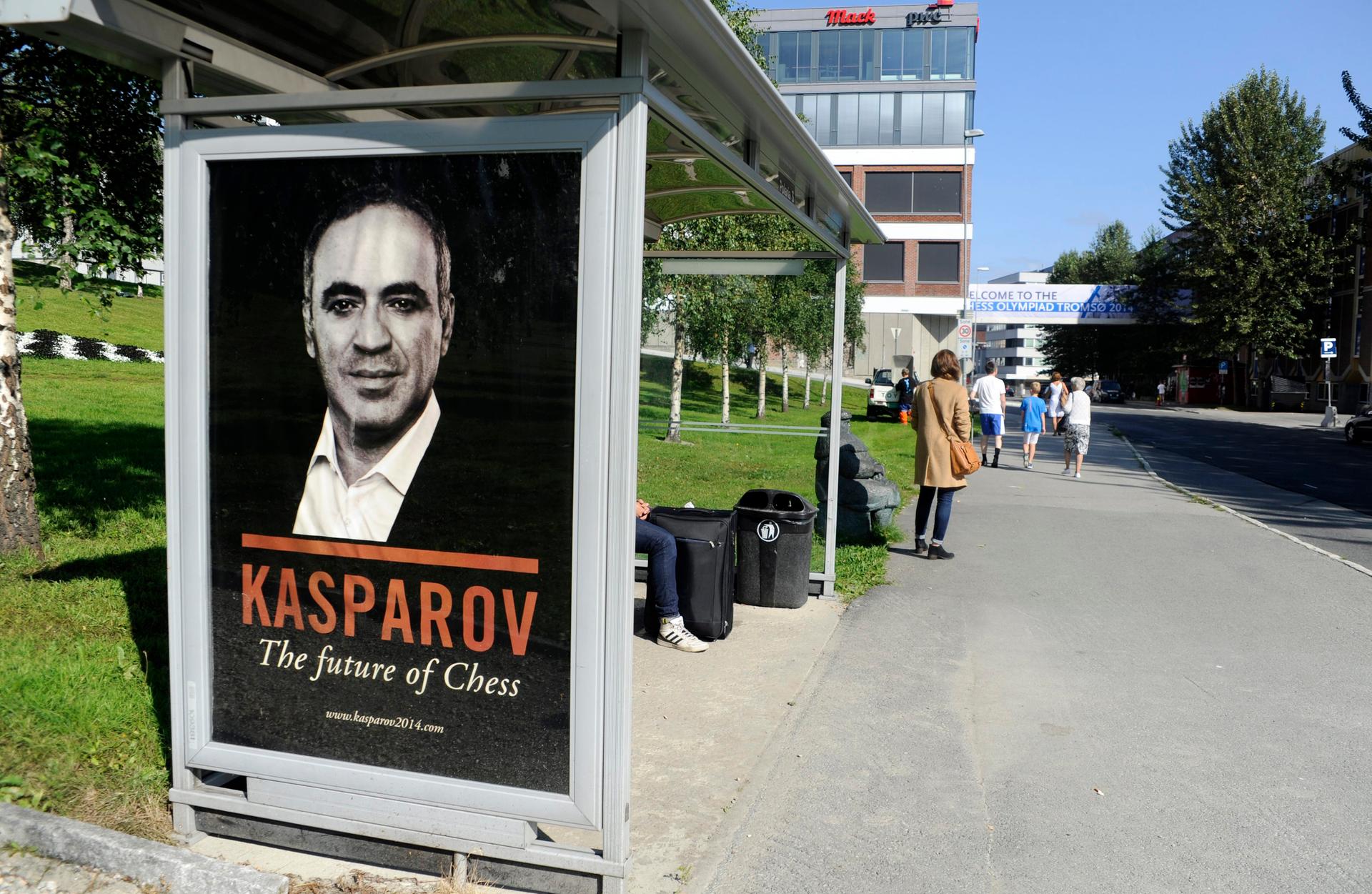A poster of chess player Garry Kasparov in Tromso, Norway, where the former world champion lost his bid to become the president of the World Chess Federation, or FIDE.
The latest power play in the world of chess involves a lot more than a king or a queen. It involves a president — as in the new president of the World Chess Federation, or FIDE.
The challenger was former world chess champion and Russian dissident Garry Kasparov, taking on a wealthy Russian businessman and politician named Kirsan Ilyumzhinov. It was expected to be a close contest, but the final result was a drubbing.
Ilyumzhinov defeated Kasparov, 110-61, says Steven Lee Myers, a foreign correspondent for The New York Times. Ilyumzhinov will enjoy another four-year term at the head of chess.
If FIDE settled elections on the chess board, Kasparov probably would've had an easy win. But the presidential campaign became a kind of proxy war over the governing style of Russian President Vladimir Putin, and things turned bitter.
Kasparov, a vocal critic of Vladimir Putin, charged that the Russian government was campaigning against his election. "Every Russian embassy in the world has been mobilized to support Mr Ilyumzhinov and to keep him in office," he told Norwegian newspaper Dagbladet. "It's not about chess. This is a pure political fight."
For his part, Ilyumzhinov complained that the presidential race had become a political campaign with an anti-Russian character to it. "Chess is beyond politics. [That] is why Kasparov is so dangerous," he told the New York Times. "This is what the chess world was afraid of: Kasparov started mixing chess with politics."
Many people may agree that chess should rise above politics, but there may already be a controversy emerging over the next World Chess Championships. They're due to take place in November in Sochi, Russia, and Meyers says "given the sanctions that are being imposed on Russia because of Ukraine by the European Union and the United States, there's some question as to how much countries and players will be able to support a championship taking place inside Russia. I think it will be controversial."
Kasparov tried to capitalize on this issue during the campaign, accusing Ilyumzhinov of a lack of transparency in his decision to select Sochi as the venue. Kasparov argued that it would undermine the potential that chess has of reaching a much bigger audience. Meyers says that may end up being the case: "I haven't heard anything about a boycott yet, but it’s fair to say that a lot of people who might have gone [to Sochi] will have second thoughts about it."
